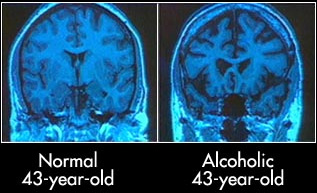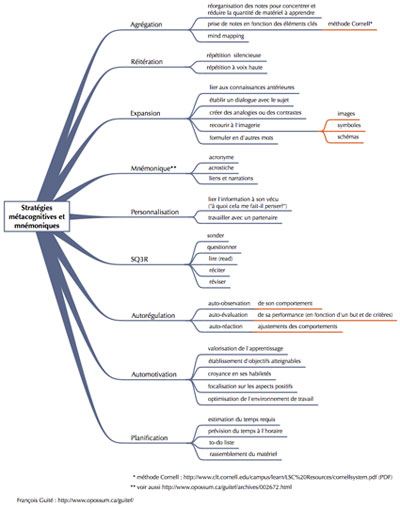En tant que professeur dans une école mixte, les différences entre les garçons et les filles m’intéressent au plus haut point. Au fil des ans, j’ai glané dans DEVONthink une quarantaine d’articles sur le sujet. Un lecteur ayant demandé plus d’information sur ces archives, j’ai préféré en faire un billet plutôt que donner l’information dans un commentaire. Ainsi, il y a plus de chances que l’information profite à d’autres. Comme il s’agit d’une liste en vrac de mes archives, la pertinence de l’information varie grandement. Je laisse le soin au lecteur de juger de sa valeur.
Général :
• GREG : Groupe de réflexion sur l’éducation des garçons (PDF) | « Ce rapport [...] présenté par le Groupe de réflexion sur l’éducation des garçons (GREG) est le fruit de deux ans de réflexion et de travaux sur la question de l’éducation des garçons dans le but de cerner les facteurs explicatifs de cette réalité et de camper une vision éclairée sur les pistes de solution à développer. »
• Conseil supérieur de l’éducation : Pour une meilleure réussite scolaire des garçons et des filles | « L’avis d’une centaine de pages tente d’apporter une meilleure compréhension de l’effet de la variable sexe sur la réussite scolaire. Il met de l’avant cinq orientations et plusieurs mesures à court, moyen et long terme pour soutenir les garçons et les filles dans leur cheminement scolaire. »
• Vie Pédagogique : Dossier : Le désengagement et l’échec scolaire d’un trop grand nombre de garçons | Un dossier d’une douzaine d’articles sur l’échec scolaire des garçons.
• CREPAS : Filles et garçons — L’abandon scolaire (RTF) | « Depuis plusieurs années, certaines différences ont été observées entre garçons et filles concernant leurs stratégies scolaires et leur diplomation, mais également leur vécu psychoaffectif et leurs conduites sociales. Ce que révèlent les statistiques et les recherches [et] les pistes d’intervention. »
• Madame : Nos garçons et l’école | « Nos garçons sont-ils les grands perdants de notre système d’éducation? Jean-Guy Lemery, directeur d’école à la retraite et conférencier, s’est penché sur la question et a fait des découvertes étonnantes. Plaidoyer pour nos garçons. »
• Condition féminine : La réussite scolaire comparée selon le sexe : catalyseur des discours masculinistes | « le contexte dans lequel s’est développé un nouveau discours de revendication centré sur les garçons et les hommes depuis le début des années 1990. »
• Cégep Beauce-Appalaches : La réussite scolaire des garçons au collégial | « les résultats de la recherche exploratoire menée sur la réussite scolaire des garçons au Cégep Beauce-Appalaches »
• Le Soleil : Les garçons plus «bollés» qu’on pense | « Les garçons québécois sont loin d’être les cancres que dépeignent les médias. En fait, montrent les recherches, ils s’en tirent aussi bien que les filles à peu près partout. Mais à l’école, la majorité du personnel continue de voir les gars bien pires qu’ils ne sont en réalité… »
• Newsweek : ‘Mommy, I Know You’ | A feminist scholar explains how the study of girls can teach us about boys.
• The Bulletin : Better teaching for Johnny (RTF) | Are young men not as intelligent? Are boys just « crazy » and « unmotivated »? Maybe we’ve just unknowingly designed schools, behavioral expectations, and communities that are « boy unfriendly. »
• Newsweek : Boy Brains, Girl Brains | Are separate classrooms the best way to teach kids?
• New York Times : Boys Are No Match for Girls in Completing High School (miroir) | Nationwide, about 72 percent of the girls in the high school class of 2003 — but only 65 percent of the boys — earned diplomas, a gender gap that is far more pronounced among minorities, according to a report being released today by the Manhattan Institute.
• BBC : Fewer boys managed the ‘three Rs’ | The proportion of 11-year-old boys able to read, write and do maths to expected standards in England went down this year, latest figures reveal.
• Toronto Star : Girls’ low self-esteem linked to depression (RTF) | Low self-esteem in teenagers is more likely to lead to depression later in life for girls than for boys, according to a Statistics Canada report.
• BBC : Girls’ school women ‘earn more’ | Women in their 40s who went to single-sex schools subsequently had higher incomes than those in mixed classes, a long-term study shows.
• BBC : Schools ‘too feminine for boys’ | Boys are being failed by schools because lessons have become too « feminised » in recent years, an academic is expected to warn.
• BBC : Schools warned over equality law | Schools may be open to legal action if they do not do more to help boys catch up with girls, according to a report commissioned by the Scottish Executive.
• The Boston Globe : State education tests show gaps based gender and income (RTF) | Vermont students improved slightly in math in statewide tests but education officials say the results show wide gaps among students based on household income and gender.
• University of Alaska at Fairbanks : Study: Boys trail girls in literacy scores | A new study by University of Alaska Fairbanks Professor Judith Kleinfeld indicates that boys, regardless of their socioeconomic status, lag behind their female peers in language arts.
• The Boston Globe : The lost boys (RTF) | Today, it’s the »boy crisis » that’s making headlines, from The Weekly Standard to Newsweek. We are presented with alarming numbers: 58 percent of first-year college students are female. Because male students are more likely to drop out, their share will shrink to 40 percent by graduation.
• Esquire : The Problem with Boys | …Is actually a problem with men. We’ve ignored all the evidence of male achievement and ambition deficits and stood aside as our sons have notched a growing record of failure and disengagement. It’s time we did something about it. A call to action.
• Newsweek : The Trouble With Boys | They’re kinetic, maddening and failing at school. Now educators are trying new ways to help them succeed.
• Education Sector : The Truth About Boys and Girls | The real story is not bad news about boys doing worse; it’s good news about girls doing better.
• BBC : Underachieving boys to get help | A pilot project to help teenage boys to improve their GCSE results is to be extended to more schools in England.
• Slate : Will Boys Be Boys? | Why the gender lens may not shed light on the latest educational crisis.
Cerveau :
• DentalPlans : Boy Behaviors and Male Chemistry | New research suggests classic ‘boy’ behaviors are triggered in part by male brain chemistry, not socialization.
• Eide Neurolearning Blog : More Boys, Girls, & Different Brains, and Longer Times to Process | More interesting papers about the learning and processing speed differences between boys and girls (and men and women).
• Eide Neurolearning Blog : Slower Developmental Processing Speed for Boys | Gender-neutral expectations for work performance will disadvantage boys at ages 5-6, 10-12, and 14-19.
• Eide Neurolearning Blog : Boys & Girls Learn Differently in the Classroom | Having a male teacher improves the performance of boys while harming girls’ reading skills. On the other hand, a year with a female teacher would close the gender gap in science achievement among 13-year-old girls by half and eliminate the smaller achievement gap in mathematics.
• EurekAlert! : Girls have big advantage over boys in timed tests | New research attempting to shed light on the evergreen question–just how do male and female brains differ?–has found that timing is everything.
• New Horizons for Learning : Male and Female Brains [lien New Horizon désactivé] | Sex differences and the brain. What does it matter, you say? I think it does. Through such knowledge we will eventually be better able to understand the basis for behaviors that many now perceive as entirely rooted in social custom or familial history.
• EurekAlert! : Study confirms males/females use different parts of brain in language & visuospatial tasks | Findings pave the way for Kennedy Krieger Institute Researchers to understand which sex differences are Developmental vs. Sociological vs. Hormonal.
• Education.com : Are boys’ and girls’ brains different? | The most profound difference between girls and boys is not in any brain structure per se, but rather in the sequence of development of the various brain regions. The different regions of the brain develop in a different sequence, and different tempo, in girls compared with boys.
Séparation :
• PetitMonde : La mixité scolaire n’a pas d’effet sur la motivation | « Lorsqu’un effet lié à la non-mixité est observé, il est si faible qu’il ne met pas en cause la mixité scolaire, soutient Roch Chouinard, professeur au Département de psychopédagogie et d’andragogie. »
• Globe and Mail : An all-girls confidence builder | Advocates of same-sex schooling say boys and girls learn better when they’re apart because their brains work in different ways.
• The Star-Telegram : Boys on the Side (RTF) | A Dallas girls school – like other single-sex schools – explores different learning styles.
• The Star Bulletin : Boys wil be boys: A case for single-gender education | Boys simply don’t learn the same way girls do, so why do we try to force them to?
• Orlando Sentinel : Separated for success (RTF) | All-boy, all-girl classrooms pop up all over U.S. despite 1970s-era ban
• The Christian Science Monitor : Separating the sexes: a new direction for public education? | In the past decade, single-sex schools have surged in popularity. Today, there are 25 same-sex public schools in the nation, almost all formed after 1996, according to NASSPE. Another 72 schools offer single-sex classes. And a dozen more are slated to open in the fall.
• The Journal Sentinel : Single-sex classrooms, controversy grow | Supporters of the movement cite research showing achievement gains in single-sex classrooms, different learning styles between the sexes and the importance of giving parents a range of options. Those critical of the efforts say the research is more ambiguous and that single-sex programs sometimes reinforce gender stereotypes.
• BBC : Single-sex schooling ‘irrelevant’ | Single-sex education seems to make no difference to students’ achievements, a review of available research concludes.
• The Globe and Mail : Subtracting distraction from the equation | Proponents of single-sex schools say girls grow up more confident, boys become more nurturing.
• The Globe and Mail : All girls – better grades | Graduates of all-girls schools have higher SAT test scores and greater confidence in math and computer skills, concludes a new, large-scale study on single-sex learning. The 100-page paper, by the University of California, Los Angeles, Graduate School of Education, validates other research showing how single-sex education can dramatically broaden the educational horizons of graduates. However, it won’t resolve the heated debate over single-sex education, and whether it addresses inequities in education – or re-enforces gender stereotypes.
Enseignants :
• The Washington Post : Disappearing Act | The trend of females overtaking males in college was initially measured in 1978. Yet despite the well-documented disappearance of ever more young men from college campuses, we have yet to fully react to what has become a significant crisis. Largely, that is because of cultural perceptions about males and their societal role.
• The Washington Post : Mars and Venus in the Classroom | The gender gaps for children age 9 to 13 approximately double in science and reading. And by the time they’re 17, « the underperformance of . . . boys in reading is equivalent to 1.5 years of schooling, and though men continue to be over-represented in college level science and engineering, girls are now more likely to go to college and persist in earning a degree.
• EurekAlert! Women need female role models | A paper published in the latest issue of Psychology of Women Quarterly uses a two-part study to find that women benefit more than men from having same-gender examples of success.
Monde :
• BBC : Girls still miss out in schooling | The UN children’s fund, Unicef, says that out of the 115m children around the world not getting any primary school education, 90m are girls.
• EurekAlert! : Why aren’t more girls ‘geeks’? | University diplomas in computer science are overwhelmingly earned by males, according to a new study of 21 nations, but significant country-to-country differences in the gender gap imply that much more than genetics is at work.
Université :
• USA Today : As boys slip behind, some feminists reject helping them | Some feminists, concerned that what helps boys might hurt girls, are denying that a problem exists — ironically in the same reflexive way that some men repudiated attempts to help girls a generation ago.
• New York Times : At Colleges, Women Are Leaving Men in the Dust (miroir) | Department of Education statistics show that men, whatever their race or socioeconomic group, are less likely than women to get bachelor’s degrees — and among those who do, fewer complete their degrees in four or five years. Men also get worse grades than women.
• Ohio State : Better grades and greater incentives help explain why women outpace men in college degrees | Girls have long gotten better grades than boys in all levels of school. But while at one time few women used those academic skills to get degrees, new research suggests that growing incentives are helping draw women to college in record numbers.
• New York Times : Small Colleges, Short of Men, Embrace Football | Some small American colleges, eager to attract men to increasingly female campuses, have taken notice of how many students can be lured to attend by adding football teams. Officials at these colleges say football can bring in more tuition-paying students than any other course or activity — and not just players themselves.
Par ricochet :
Différences de cerveau entre les sexes
L’éducation pénalise les garçons
Étude : les garçons plus sujets au plagiat
Lenteur des garçons à apprendre l’alphabet
Les examens scolaires favorisent les filles
L’école est-elle trop “féminine” pour les garçons ?
Les garçons moins patients que les filles
Ségrégation garçons-filles à l’école : effet négligeable
Les garçons plus lents à traiter l’information
Langage et visualisation : hommes et femmes diffèrent
Le sexe d’un enseignant affecte l’apprentissage
Avantage Q.I. masculin (et cerveau d’ado)
L’école au masculin (Infobourg)
 Non loin est le jour où le dopage ne sera rien de plus qu’un moyen de s’élever… à la moyenne. (Mathieu Harvey)
Non loin est le jour où le dopage ne sera rien de plus qu’un moyen de s’élever… à la moyenne. (Mathieu Harvey)




















